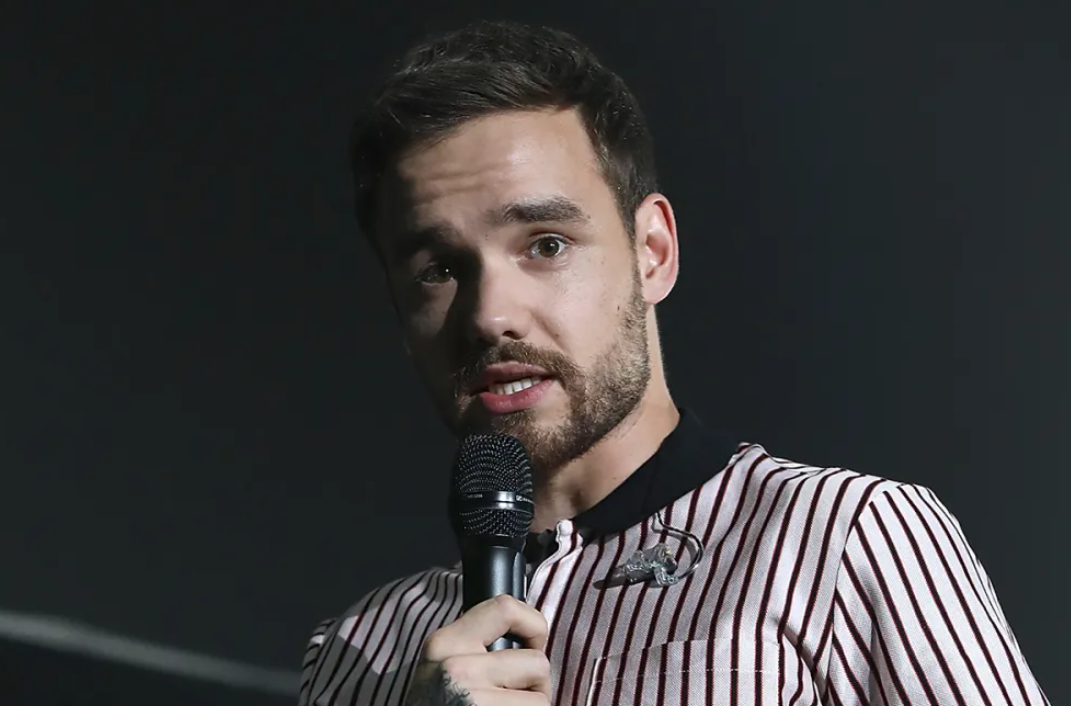. Westfield High School, a place we all know and cherish dearly, home to stressed academics, dorky nerds, band geeks, socially inept weirdos, sweaty jocks, and “popular” chicks, an American classic, reinvented in the reality of the modern age. Everyone’s seen the stereotypical high school tropes: there are the cool kids, and there are the losers.
. Those ideas, however, are more outdated than the textbooks we use. We don’t live in the early 2000’s any more, and technology and social media have connected the world more than ever before in human history. In this age, ‘loser core’ and ‘loner aesthetics’ are the new ‘cool’, and every kind of kid has an online community with thousands of people just like them. Social media has evidently had its benefits, however, the rise of short-form ‘relatable’ content meant to connect people, especially when it’s catered and targeted to kids, has done irreversible damage to people’s attention spans.
. The prime example of a widely used social media platform based on short-form content: TikTok. It’s a 75 billion dollar company used by an estimated one billion people worldwide monthly and needs no introduction. The #fcps (Fairfax County Public Schools) tag alone has more than 20.2 million views on the app, making the community’s presence impactful in more than just the real world.
. Countless hours of content has been created and consumed by students in the county, and the effects of such unrestricted internet use haven’t been studied enough. Gen Z (and arguably Gen Alpha) is the first to have the whole world at their literal fingertips, and when asked, Westfield’s students had much to say about the topic. Their responses were- to say the least- alarming.
Diya Kumarasamy, 10, says, “I use [TikTok] every day, for a few hours. I feel like it has affected my attention span a little bit; you know how on TikTok you can change the playback speed? I’ve been watching everything at 2x speed recently. It’s not even that the videos are long, I’ll speed up a 50 second video too.”
. Mary Kang, 10, adds, “How long I use [TikTok] depends on what I’m doing, like if I just have it open to have background music on in the morning. Sometimes there’s one TikTok I just repeat for ten minutes.” She continues, “Kids these days are really bad because of TikTok; they’re all makeup gurus, it really affects their mental health. They see all these famous people and they do the same thing and say ‘oh I’m not famous, I must not be good enough’.”
. Hunter Knox, 10, reflects on his relationship with the app. “Well, I mostly use it in school when I have free time and I really don’t wanna do work. Per day, I’d say [I use it for] at most three [hours]. During the week it probably adds up to, like, fifteen, maybe?” His attention span, too, has been a victim to short-form content. “I can definitely find myself getting a little more impatient. I can’t just sit and watch Youtube videos anymore; I gotta be, like, playing a game or doing other things at the same time.”
. Anya Varghese, 10, pipes up about how TikTok has affected her friends. “Literally all of them [use it]. Most people who, I guess, care about their grades more… Whenever it’s becoming a distraction, they just delete it. I have this one friend … she only keeps TikTok during break, and then once school starts again, she deletes it.” She accounts. “You can have TikTok as long as you’re, like, smart about it, but there are also some kids who’ll just go on TikTok for their entire class, and teachers can’t enforce [paying attention]. It’s pretty inconvenient.”
. Aditya Mayan, 10, adds quickly, “If you’re spending time on your phone, that’s social media. Most my friends are either on TikTok or reading.” At least some kids here are still doing other things than staring at their phones all day.
. Vini Mandavilla, 10, rants angrily about her friends’ overuse of the app. “Unfortunately, they’re on it 24/7. First thing they do in the morning, TikTok. Once they eat lunch, TikTok. When their mom picks them up, TikTok. Can’t you be social? If there’s free time, they’re just on TikTok. They have no attention spans because of TikTok. They choose TikTok over me.” She fumes, repeating, “Zero attention spans. I blame it on TikTok.”
. Hia Banerjee, 10, admits the details of her addiction. Discussing her deteriorating attention span, she laughs, “Oo lord, yes, it’s really bad, like it’s really short. It’s gotten to the point where I’m so addicted … and other people are also so addicted that we’ll be, like, sitting next to each other, and like, hanging out, but we’ll just be scrolling through TikTok on our own phones. We won’t even show them to each other, we just send them to each other.”
. Khadeeja Rafiq, 10, adds unhelpfully to the conversation about TikTok users, “Oh, well, they’re kind of brainless.” She does have a grain of truth in her sarcastic statement however; as we’ve heard, kids who use social media obsessively become like zombies in their own lives.
. TJ Craypoff, 12, continues the conversation with fitting relevancy. “Sadly, TikTok is causing my brain to rot, and I just- it’s essentially due to the fact that TikTok is ruining people’s attention spans. A lot of kids nowadays, since they’re only seeing, like – how long are the average TikTok videos? Fifteen seconds? – that’s their attention span now. Something longer than fifteen seconds, they just give up, and I’m really worried to see where the world goes when I eventually grow up…”
. Lizzie Laurelli, 11, discusses the more technical side of things with some cynicality. “Unfortunately, I kind of feel like app developers, they’re just kind of building on what can make people addicted to their application so they can get as much money out of it as possible.” She says sadly. “There are so many apps that are building off, like, the concept of TikTok, now there’s not just TikTok, there’s Youtube Shorts, Instagram Reels, all of them are just kinda building on how much they can get users to use their app. It’s all just mind numbing short content, where if you can’t capture your audience’s attention in three seconds or less, well. I think that’s becoming a problem.”
. Adam Azmi, 10, builds off her thoughts on the technical side of things. “TikTok, to be honest, sucks, because we have future generations relying on short-form content. They get a small hit of dopamine, and that’s really it. They are probably losing attention span by the second. I’d probably do the same thing if I had TikTok. If TikTok never came to the U.S., I think we would have more long-form content.”
. All these students highlight the unique issues in our area with a more personal individuality than a graph could hope to chart.
. Kids are distracted, their brains are fried, and no one’s happy about it. Is there any solution? Would we even want a solution, or are we as a generation too reliant on the infinite reach of the internet to function?
. This generation has a pivotal need for technology and interconnectedness. Social media, phones, apps, self advertisement, branding, connection – it all stems from our pesky little phones. We need technology to make our way in the world nowadays; jobs check your instagram before hiring, your social circle is defined by who you’re following, and even education is reliant on these things.
. However, we kids in the younger generation are constantly told to get off our phones. We’re told to put it away, and for good reason: all this technology is extremely detrimental to our mental health. We need social media to function and interact with the world, and it’s simultaneously destroying us.
. These contradictory double standards are what kids today are caught in constantly, and we aren’t unaware that all of this is happening. Our generation, ‘blessed’ with infinite grasps of knowledge, have turned into a bunch of ironic, sarcastic, hopeless teens. News of politics and serious real world issues are presented and circulated to all of us through the use of memes and other propaganda-esque shit, and without media literacy, navigating the newly made, humourous nuances of internet politics is a nightmare.
. Compared to the vibrant, information-abundant world in our screens, the real world seems drab, and this too is yet another intentional effect from manipulative corporations who just want to harvest our time, ad revenue, and life. Phones and media are made colourful for kids, similarly to vapes, and we are sucked in, chewed up, and spat out. Kids starve for attention, since self-advertising is the new way of the world, and the ones that do get attention, kill themselves. Family vlog channels abuse their kids. Kids are criticised by grown adults (think of the Sephora girls, ten year olds who were so pressured to have sex-appeal that they turned in droves to Sephora, then were blatantly ridiculed for doing so).
. Those not lucky enough to acquire everlasting fame in their ‘tween’ years ask themselves why they aren’t good enough. Those who do get famous are infamously abused by predators and laughed at by everyone else. Everything’s so fast-paced; these ten year olds are trying to be in their mid twenties and are suffering the consequences of actions they are far too young to have been allowed to make in the first place, millions of people are laughing live at whatever’s trending, and ads are everywhere all the time.
. Of course real life seems drab; it’s by design. How are we, as children, supposed to ‘know better’ than to escape something that is not only pivotal to engaging with the world, but something that is also designed to trap us? We know that we can’t escape, and dry humour now commands every teenager’s mind. 9/11, the most influential terrorist attack in America to date, is now nothing but another joke – war, death, famine, the nightmare known as capitalism, politicians, natural disasters, suicide, it’s all just a grim joke. The older generations have not the foggiest idea of how the world works now, and for good reason (it has only been 20 years since the popularisation of the internet and thus the widespread adoption of absurdist nihilism by teens).
. Everything teens say is a dry joking jab at society. Climate change, capitalist corporation take-over, AI replacing jobs, the popularisation of vapes with no idea of the consequences; we know collectively and with certainty that we are all going to die young. What else can we do but laugh? We have to engage with the world with this mindset in order to not kill ourselves, and the internet offers hospitality in its refuge of politically motivated memes. We have to be on social media spaces to survive.
. As we consume it, it consumes us too. It’s not a safe place to be (war propaganda pushed by who-knows-who, predators using AI to photoshop anyone’s face on porn, trendy cartel gore videos of actual felonies), especially for kids, but what other option do we have? Nothing. No option. We are so desensitised to everything and it all passes by in a blur, because if we stopped to actually think about even one funny video that we scrolled past, to really think about what it means and its implications, we would die. Our brains would overload and explode, and if someone recorded that, it’d probably also go viral.
. The worst, most fucked-up side of humanity is exposed to the world and the children guised as humour. This infinite knowledge is addictive. The screens are where all of our knowledge of the world comes from. Headlines are now ten-second memes that we can click on if we’re interested, taking us to even more memes with more details on the subject.
. In 2024 alone, the news of the world that every kid in America knew about included The Man who Jumped his Judge in Court, The Japanese Plane Explosion and Earthquakes, The Murderer Gypsy Rose’s Release from Prison, Yandere Dev’s Pedophilia Apology Video, The Mental Illness Trend, and The Release of the Jeffery Epstien List, none of which are even semi-suitable for children in their most watered down ‘funny’ forms.
. We as a generation are lost to ‘doom scrolling’, to ‘don’t forget to like and subscribe’, to ‘posting every day for the algorithm’. We can’t handle real life anymore; we are spoon fed the drug of distraction and can’t go on without it. Things are grim, and there’s nothing us kids can do about it. Can the adults help us? Would they extend their aid to protect their kids without monetary incentive? Doubtful.
ATTENTION!! AND ITS CONSEQUENCES WITH THE YOUTH

0
More to Discover
About the Contributor
Chrissy Eldredge, Staff Writer
Hello! I’m Chrissy, a sophomore, and I’m from Fife, Scotland. As a first generation immigrant, I’ve lived most of my life in America, and have spent my time here learning, studying, reading, and writing. I hope to enter the medical field to begin my career, and also hope to continue writing books as a hobby. I’ve published articles in both my middle and elementary school ‘papers’, and have taken multiple creative writing courses. I have two kitties at home, and am planning to get a third in November of 2023.




